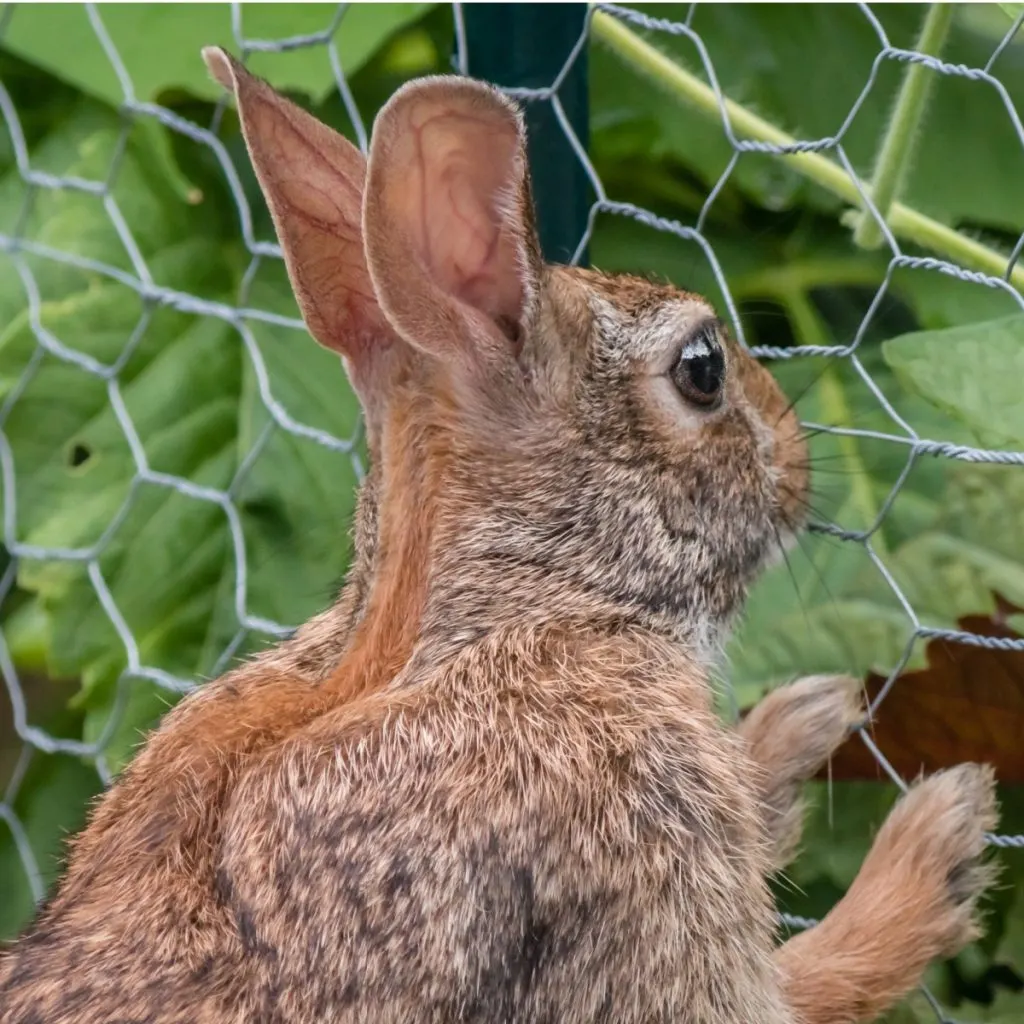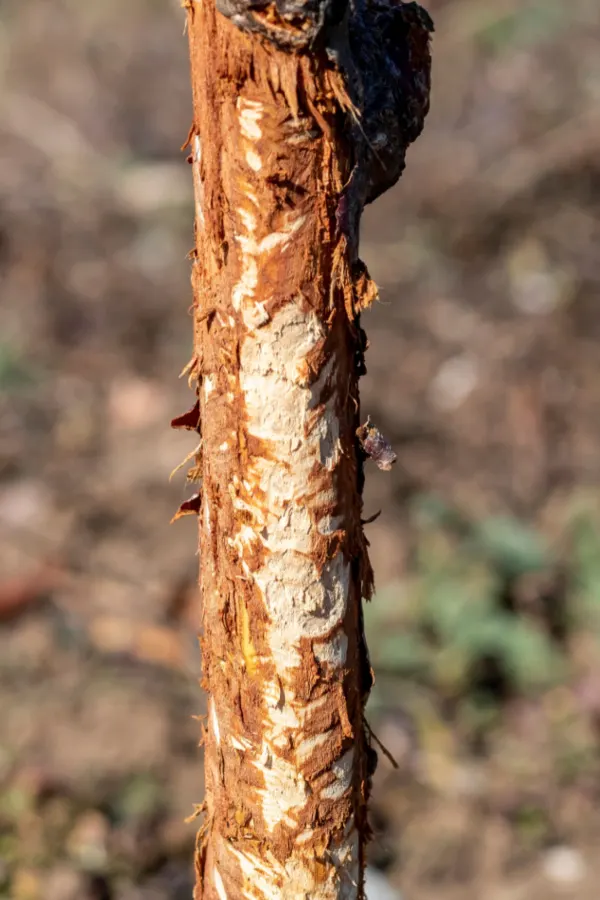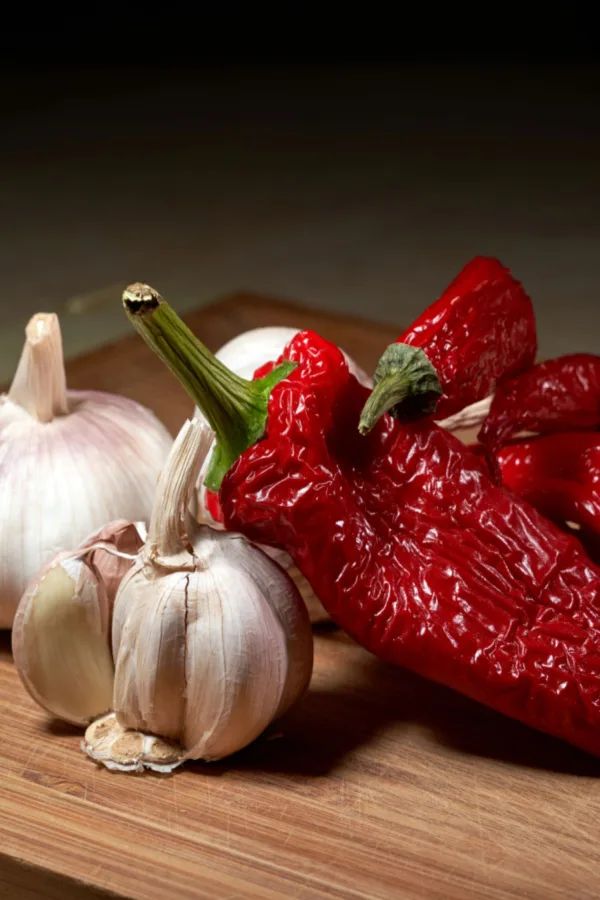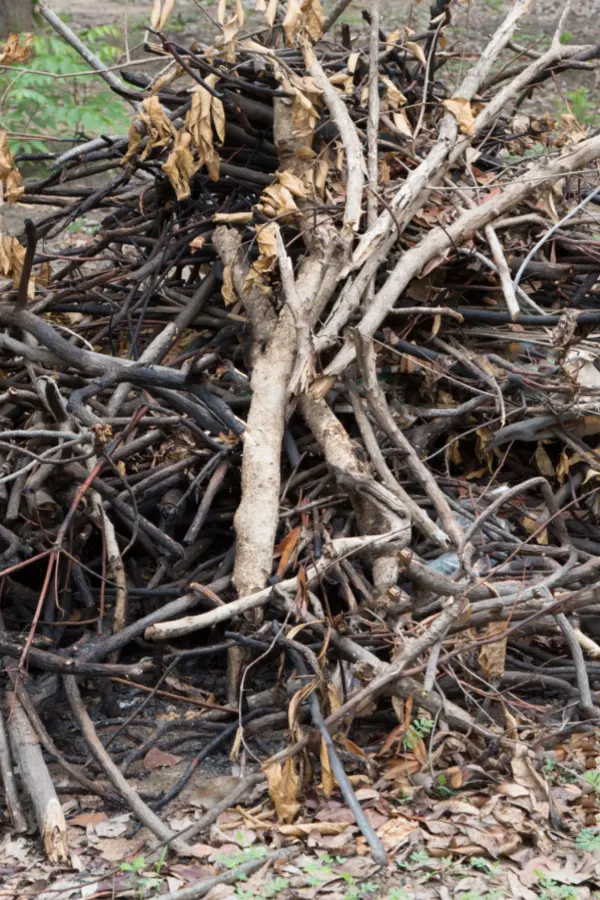Looking for a few simple and effective tips and tricks to keep hungry rabbits out of your flowerbeds and garden this year – and keep them out for good?
Rabbits can wreak havoc on garden plants and vegetables. Contrary to popular belief, rabbits like to munch on a lot more than just carrots. They actually enjoy feasting on all types of fresh, young plants – including annual vegetables, flowers and perennial plants too.
In the vegetable garden, lettuce, peas, beets, green beans, spinach, cucumber and broccoli are among their top vegetable picks. And for flowers, pansies, tulips, asters, impatiens and daylilies head up a long list of rabbit favorites. During the colder months, rabbits will even chew on the bark of trees and shrubs, damaging and sometimes killing them in the process.

Making matters worse, rabbits are prolific reproducers. Each female bunny is capable of producing up to twelve babies three to six times each year. That means your garden and flowerbeds can provide meals for generations of rabbits, all within the same year!
The good news? Thankfully, with just a few safe and simple methods, you can keep rabbits from destroying your plants and your landscape – all while not harming the environment, or the rabbits themselves.
Is It Rabbits Attacking Your Plants – Or Something Else? 3 Simple Secrets To Keep Rabbits Out
Success with stopping rabbits all begins with making sure that rabbits are your issue, and for that, there are several easy tell-tale signs.
Start by checking the area for soil that has been dug up. You may even find tufts of fur or pea-sized droppings left behind. As for damage, because rabbits are short in stature, most of the plant loss will be close to the ground.
Young and tender plants are their most likely main victims. Check on new transplants or young seedlings for damage or for entire missing plants. Unlike most pests and insects, rabbits will leave clean cuts when consuming the leaves and stems of plants. It will look almost as if the foliage was removed with pruning shears.

Last but not least, be on the lookout for damage to surrounding young trees, bushes, and shrubs. Rabbits like to gnaw on low branches and bark. They will also chew on hoses, raised bed containers, or anything that might have been left behind in the garden. If you do see these signs – it’s time to start protecting your plants!
4 Simple Secrets To Keep Rabbits Out Of Your Flowerbeds & Garden
#1 Homemade Hot Pepper Spray
Hot pepper spray is a 100% organic and natural repellent. It’s not only highly effective for rabbits, but for squirrels, chipmunks, and other garden pests as well. The best part is that you can make it inexpensively with simple ingredients, most of which you may already have on hand.
For starters, be sure to wear gloves and eye protection when making and using the spray. It can burn skin and eyes if it splashes, and it’s best to always be on the safe side.
To make hot pepper spray, you will need 1 gallon of water, 10 hot peppers minced finely (cayenne, ghost, jalapeno will all work), six crushed or minced cloves of garlic and a few drops of olive oil or biodegradable dish soap. You can substitute 5 tablespoons of hot pepper flakes or 2 tablespoons of hot pepper powder if you do not have fresh peppers available.
Add all the ingredients except the oil or soap to a large pot and heat to boiling. Simmer for around 30 to 45 minutes, mixing occasionally. Remove the mixture from the heat and allow it to sit for 24 hours.

Next, carefully strain the solids from the liquid using a colander. Pour the liquid into a sprayer, adding a few drops of the oil or dish soap to help the solution stick better to the foliage of plants.
When & How To Spray
Shake the solution prior to spraying. Use early in the evening when the plant’s foliage is dry. Avoid using it during the heat of the day as it can burn sensitive foliage under the harsh sun’s rays. Be sure to spray around the bottom two feet of plants and under the leaves as well.
Repeat as needed, especially after rain or watering your plants. A great bonus to using this homemade spray is that it helps deter some harmful insects as well!
#2 Companion Planting – 4 Simple Secrets To Keep Rabbits Out!
Another option to keep rabbits away is to use companion planting. There are actually several plants and flowers that rabbits can’t stand – so much so that they often leave other plants they love alone if you grow them right by them.
The most effective flowering annual for rabbit defense is marigolds. Their pungent odor is highly offensive to rabbits. In fact, it is actually offensive to quite a few flowerbed and garden visitors and can help keep many plants safe. See: The Amazing Benefits of Growing Marigolds In Your Garden & Flowerbeds
Other plants with strong odors that are great rabbit repellents are:
- catmint
- lavender
- salvia
- allium
- garlic
- mint
- sage
- basil
Last but not least, hot pepper plants are another annual that they are not fond of. Many gardeners will even locate these in their flowerbeds to help keep rabbits at bay.

#3 Keep Your Yard Clear – 4 Simple Secrets To Keep Rabbits Out!
Another way to help prevent rabbits from destroying your garden is by making your property less comfortable for them. Rabbits tend to not stray far from their shelters when finding a food source. So if your property is less inviting for creating a shelter to begin with, rabbits won’t want to stick around for their meal either.
Remove stacks of wood and brush piles that make for perfect rabbit hideouts. Fill in previously found burrows or rabbit holes in the ground. Keep your grass mowed short and trim down any brushy areas. If there aren’t places for the rabbits to hide or create nests in, they are less likely to set up shop.
#4 Use Rabbit Fencing – 4 Simple Secrets To Keep Rabbits Out!
One of the simplest and most effective methods is to install a fence around your garden plants. However, not all fences will work at keeping rabbits out. Due to their small size, the holes in the fence must be small enough that a rabbit can’t squeeze through.
Low welded wire fencing or even chicken wire are the best options due to their small openings. In addition, rabbits cannot chew through the material of the metal wire. Plastic fencing will just provide bunnies with a way of sharpening their teeth while creating holes to get to plants.

The fence should be at least two feet tall because even though bunnies can hop, they can’t do hop very high. The fence needs to be either secured to the ground or buried at least six inches underground. Rabbits do like to dig, so burying it under soil is the best choice. You can also try bending the top of the fence out away from the garden to help deter climbing or hopping.
Here is to keeping rabbits out of your garden and flowerbeds this year – and your plants safe!
Simple Garden Life
Follow Our Facebook Page For Even More Great Tips! Simple Garden Life Facebook Page
Simple Garden Life is a website dedicated to keeping gardening fun, simple and enjoyable! We publish two new articles each week along with a new garden podcast episode every two weeks. This article may contain affiliate links.
